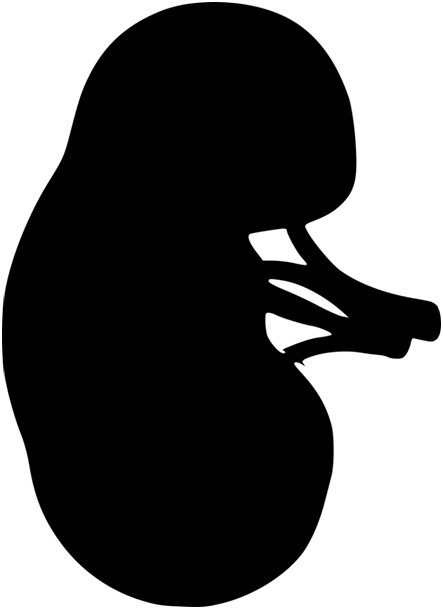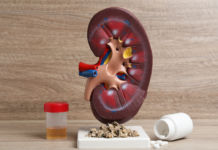Chronic Kidney disease is characterized by the progressive loss in kidney function over a period of time. Kidneys serve the functionality of filtering waste and excess fluids from the body which is then excreted with urine1. Chronic Kidney Disease or CKD, reduces the kidney’s ability to filter waste and results in the buildup of fluid, electrolytes, and waste in the body1 . Along with the progressive loss of kidney functions, people with CKD may also develop complications like high blood pressure, anemia, poor nutritional health, nerve damage and weak bones2. If CKD is not treated it will develop into end stage kidney failure which is fatal without dialysis or kidney transplant2.
The two major causes of CKD are high blood pressure and diabetes2. Diabetes causes damage to many organs in the body like eyes, blood vessels, heart and kidneys2. While high blood pressure is a major cause of CKD2, CKD in itself also results in hypertension2. Some chronic kidney conditions are also inherited like the polycystic kidney disease2. Other conditions like lupus, kidney stones, tumors, enlarged prostrate in men or Glomerulonephritis (that damages the kidney’s altering units) can also result in CKD2.
Symptoms: Though the problems associated with kidney disease continue over a period of time, it may be mistaken for other illnesses. For example, fatigue, loss of energy, trouble with concentration, poor appetite, trouble sleeping, muscle cramping and itchy skin are all looked upon in isolation and often attributed to lifestyle problems and diseases. Though kidney disease can come at any age, people are more likely to develop the disease if they already suffer from diabetes, high blood pressure or have a family history of kidney disease2.
When you visit a doctor with these symptoms, they will probably order a blood and urine test to determine the extent of your kidney damage and recommend a course of treatment accordingly. The blood test will provide specific information on the status of kidney damage with levels of waste products such as urea and creatinine in your blood. Urine test may reveal related abnormalities that can signal kidney failure. Imaging tests such as ultrasounds may be used to determine if your kidney has shrunken in size.
You’ll have to ask specific questions about your diet as there are many dietary restrictions for people with CKD. You’ll also need to find out about specialists in your area from whom you can get a detailed opinion about your condition. With timely detection, lifestyle changes and medication, CKD can be kept under control.
Sponsor: Kibow Biotech® 
References
- National Kidney Foundation. (2017, May 10). How Your Kidneys Work. Retrieved from https://www.kidney.org/kidneydisease/howkidneyswrk
- NationalKidneyFoundation.(2019,June10).FactsAboutChronicKidneyDisease. Retrieved fromhttps://www.kidney.org/atoz/content/about-chronic-kidney-disease




